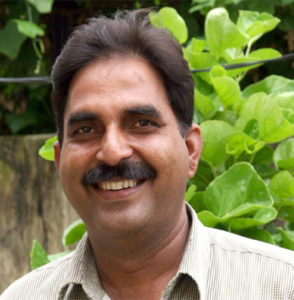 by Sanjay Saxena
by Sanjay Saxena
Lucknow: It’s beyond comprehension why the government strictly adheres to the law when dealing with those who commit heinous crimes, such as raping young girls. The argument often presented is that if one person commits a crime, why should their entire family suffer the consequences? Those who advocate such arguments need to understand that when a crime is committed against a young girl or a family member, the entire family suffers the consequences. So, how can the criminal be granted leniency on the grounds that their entire family shouldn’t be punished for their crime?
This discussion revolves around the Supreme Court’s recent decision, where it questioned the bulldozer actions taken by state governments. While the Supreme Court may have its stance, this does not apply universally to all criminal cases. If the criminal is powerful, they can manipulate the law to their advantage, deploying a battalion of lawyers in court for their defense. Isn’t it true that even today, those who commit minor offenses remain in jail because they lack the financial resources to secure bail? Their pain never even reaches the doors of the court. The Supreme Court never clarifies why there isn’t a limit on the number of lawyers who can argue on behalf of either side in a case.
It’s not true that the government is always ready with a bulldozer for every criminal case. However, an environment has been created as if the government is the primary offender, especially with allegations that the Yogi government targets Muslims more frequently with bulldozer actions. Those who make such claims often hide their crimes behind legal arguments. It’s worth noting that the Supreme Court raised questions on September 2 about bulldozer actions taken by administrations in several states. The court questioned how a house could be demolished without following due legal process, solely because someone is accused of a crime. The court further stated that even if someone is guilty, their house cannot be demolished without following the legal process. This statement from the Supreme Court seems to parallel the notion of running a parallel government. Nonetheless, the court has hinted at issuing nationwide guidelines on the matter and has asked all parties for their suggestions. It would have been better if the Supreme Court had also considered Prime Minister Narendra Modi’s remarks, made during a Supreme Court event, where he urged for quicker resolution of cases related to women, in which the Chief Justice was also present.
During the hearing, the court clarified that it would not protect illegal constructions, but the orders it issues tend to encourage illegal constructions. The entire country is grappling with the problem of encroachments, yet the Supreme Court has never taken as strict steps against encroachers as it has in their favor. Whether it’s the encroachment on railway land to set up settlements or seizing government land for sale, the court’s orders give the impression that it is hesitant to punish one innocent person at the cost of being lenient towards 99 guilty ones. The Yogi government of Uttar Pradesh, while denying the allegations of illegal demolitions in the Supreme Court, stated that actions are taken according to the prescribed legal process. Simply being accused of a crime can never be a reason for the demolition of immovable property. The next hearing on the matter is scheduled for September 17.
These comments and directives against the bulldozer actions were given by a bench comprising Justice B.R. Gavai and K.V. Viswanathan during the hearing of petitions filed by Jamiat Ulama-e-Hind and others. The Jamiat’s petition alleged that the homes of accused individuals were being unlawfully bulldozed in Uttar Pradesh, Madhya Pradesh, Rajasthan, and other states. The petition claimed that there is a dangerous trend of bulldozer justice in various states, targeting specific communities and the underprivileged. Senior lawyers Dushyant Dave and Farooq Rasheed represented Jamiat, while Solicitor General Tushar Mehta argued on behalf of the Uttar Pradesh government. Mehta informed the bench that the state government had already filed an affidavit on August 9, stating that a person’s home cannot be demolished simply because they are accused of a crime. He further clarified that no immovable property can be demolished solely on the basis that the person is accused of a crime. Mehta stated that the demolitions were carried out legally, following violations of municipal and development authority laws. The bench acknowledged Mehta’s statement and indicated that it would issue nationwide guidelines based on it. Mehta criticized the petitioners for presenting the case as if houses were demolished simply because someone was accused of a crime, while in reality, notices were issued long before the demolitions occurred due to the illegal nature of the constructions.
The bench also clarified that it would not protect illegal constructions or road encroachments, but stressed the need for guidelines in this regard. Justice Gavai questioned how someone’s house could be demolished just because they are accused of a crime, noting that even if they are guilty, their house cannot be demolished. Justice Viswanathan emphasized that any action against illegal constructions must also follow the law. Mehta pointed out that the Jamiat had filed the petition on behalf of the people whose houses were demolished, and argued that the case should be closed in light of the Uttar Pradesh government’s affidavit. However, Jamiat’s lawyer Dushyant Dave requested the court to issue guidelines on the matter, arguing that this was a widespread issue, not confined to one location. Justice Viswanathan agreed that it was essential to ensure that no one could exploit legal loopholes and that any action, even against illegal constructions, must adhere to the law. The court will reconvene on September 17 after hearing suggestions from all parties.
In conclusion, the Supreme Court seems concerned about how to proceed against criminals, but during the entire hearing, it did not express any sentiment that it was also sensitive to the plight of the victims, which is concerning. On one hand, when crime rates increase under a particular government, the courts criticize it, but when steps are taken to control crime, the same courts raise questions against the government.


